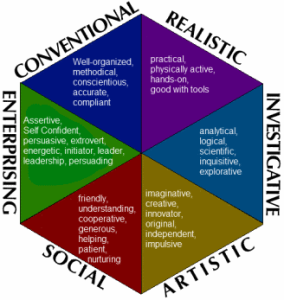With the onslaught of data mining and the use of metrics databases in the digital age, employers are testing candidates to measure every aspect of their psyche and skills. Predictive analytics can be used to identify applicants who fit a company’s culture. The goal is to find employees who will excel & are in it for the long haul.
According to a study by “SIOP“, the Society for Industrial & Organizational Psychology,
- 68% of employers engage in various forms of job skill testing.
- 41% of employers test job applicants in basic literacy and/or math skills.
- 34% of job applicants tested in 2000 lacked sufficient skills for the positions they sought.
- 29% of employers use one or more forms of psychological measurement or assessment.
- 20% of employers use cognitive (reasoning & problem solving) ability tests.
- 13% of employers use personality tests.
In addition, a 2013 SHRM , the Society for Human Resource Management, survey revealed 77% of companies use social media networking to find talent. Over 1/2 of the employers who research job candidates on social media said they’ve found content that caused them to not hire a candidate.
 To assist you with a prospective employer’s questions, we recommend a Selfie, a career self psychological evaluation. A career self-assessment is an important tool that can help you identify possible avenues within your career path and set the stage for a long-term career move. Dr. John Holland, Ph.D., created the Holland Codes or Occupational Themes (RIASEC) to help match a job applicant with encouraging employment choices. Many occupations will encompass two of the Holland “RIASEC” Codes:
To assist you with a prospective employer’s questions, we recommend a Selfie, a career self psychological evaluation. A career self-assessment is an important tool that can help you identify possible avenues within your career path and set the stage for a long-term career move. Dr. John Holland, Ph.D., created the Holland Codes or Occupational Themes (RIASEC) to help match a job applicant with encouraging employment choices. Many occupations will encompass two of the Holland “RIASEC” Codes:
- R- Doers (Realistic) Working with things and the use of tools, playing sports, and being physically active.
- I- Thinkers (Investigative) Working independently, like math & science, analyzing data, & research.
- A- Creators (Artistic) Working in unstructured situations where they can use creativity and new ideas.
- S- Helpers (Social) Working directly with people. Teamwork, teaching, counseling, & communicating.
- E- Persuaders (Enterprising) Starting new projects & making decisions. Selling, promoting, & managing.
- C- Organizers (Conventional) Working to ensure systems & projects work efficiently. Goals, deadlines & instructions. Detail oriented.
Working in a fulfilling career can dramatically increase happiness, self-confidence, and productivity, and consequently improve a company’s performance. Do you know who you are? More importantly, are you ready for the 3rd degree?
]]>

